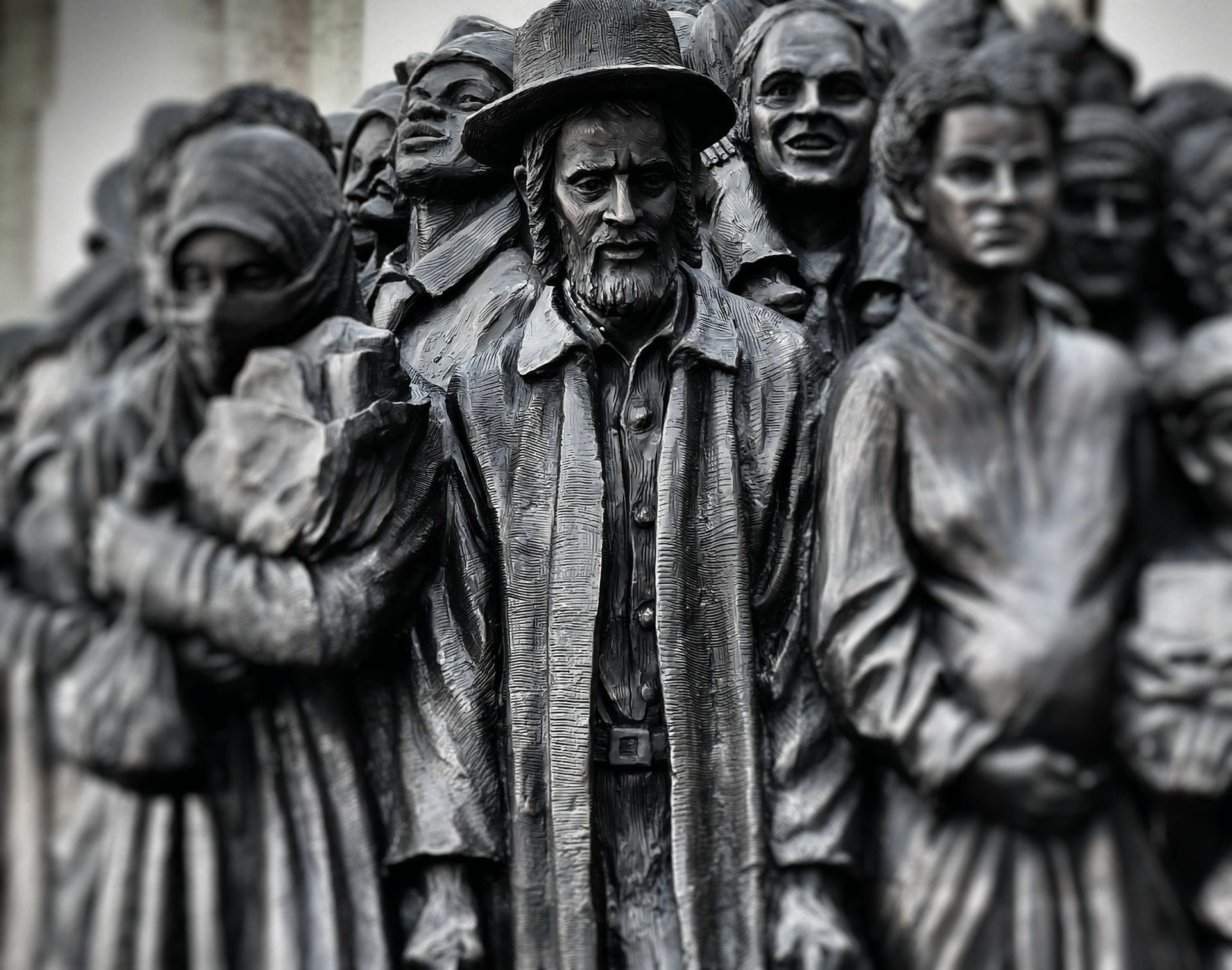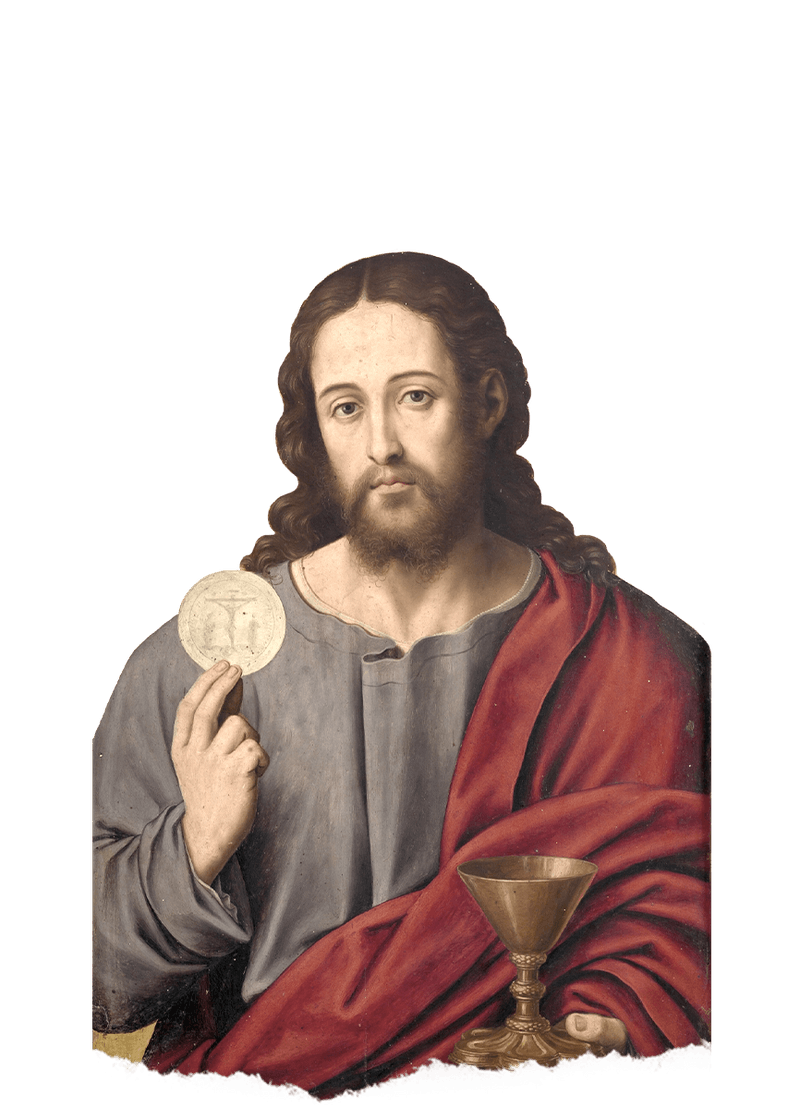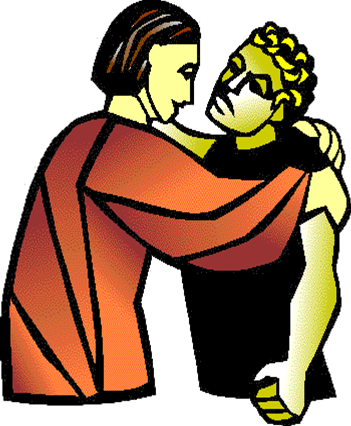Pope Francis’ pontificate is marked by his relentless call to be merciful. In fact, a book entitled the face of God is mercy came out a few years back. When I typed the word Mercy in the search bar, on top of the list was a website telling me that the word Mercy has its roots in medieval French merci/gratitude/kindness and is translated in two blended Spanish words, miseri and cordia, that is, someone who has a heart to troubled and miserable lives.
To be merciful in Luke 6:27-38 presumably addressed to the victims in all sorts of stuff is fully expressed in the profoundly challenging task and nearly-impossible command of Jesus to love your enemies: do good to those who hate you, bless those who curse you, and pray for those who mistreat you. Love those who strike, bully and beat you up. Turn the other cheek if you can. Love those who steal from you. A story is told about a monk who caught his robbers. Many of us, if not all, would immediately get help from law enforcement agents as the case maybe to seek reparation from the damages inflicted. But surprisingly, the monk did an entirely different thing (perhaps, he didn’t have much in his place by virtue of his vows). He told them that if they needed more than what they had stolen, feel free to come back and get anything they wanted without fear of bringing them to justice and suffer consequences. There’s life and happiness underneath the sacred text. At this point of the reflection, I’m inclined to say that loving your enemy would mean not following or imitating what they’re doing (presumably, evil), unless the opposite is true. We’re asked to distance ourselves and refrain from any association with them. Leave them alone, if you can. Avoid them. Don’t join them in the mud as it is a waste of your time and not worth your energy. The other side to the equation is to keep your enemies closer and at bay like the living examples of the spiritual giants.
By the same token, David, in the first reading taken from the book of Samuel, demonstrated the depths of his beliefs in letting go of his enemy. Upon seeing Saul and his company out in the field in deep slumber (literally defenseless with weapons down and could have easily been defeated with the pull of the trigger), David firmly believed that to spare his enemy was the right thing to do at that crucial moment in the confrontation. He made this tough decision under intense scrutiny and pressure from Abishai who promised "to nail him to the ground with one thrust of the spear. “Don’t harm Saul”, he told him. I hope war movies produced these days end up this way to serve as inspiration in a troubled and war-torn world. Look at the kind of video games kids play these days. I don’t remember exactly what it is (possibly either counter strike or fortnite) but it's the game that you start in a parachute, land in an island (no man’s land) and conquer it by shooting people. If it’s just a game for fun and past time, it's fine but if the young ones are heavily saturated and influenced by it, that's alarming. If such things swallow you and eat you alive, that’s a different story. I will not hurt Saul for he is God’s anointed and will let God take care of his fate as I’m afraid of divine retribution, David said.
The golden rule, ‘do to others what you would have them do unto you’ is best lived in kindness towards the other. This difficult demand asks us not to settle on the receiving end but to lead the movement, to set the example and trend, to be the key players in the quest to bring the house down. To kill our enemies with our kindness is the ultimate game plan in love of neighbor. This is what the other-worldly kingdom of God values of forgiveness, mercy and love bring to the world. There are many good people here in Douglas-Pirtleville-McNeal-Double Adobe and the entire boundary of my pastoral responsibility. We have community food bank. There are various non-profit organizations offering services for the troubled people. St. Vincent de Paul Society assumes has a huge responsibility in feeding the hungry and providing clothing for the naked all- year round.
Christianity is not an idea. It’s a story of the ultimate love of the other (either a fellow or a stranger). One can be a voracious reader and can devour tons of books. While serious study and reading is highly encouraged, in my experience, no amount of reading materials, let alone a civil and ecclesiastical degree will ever surpass and replace the goodness and kindness done to a neighbor. The incredibly rapid spread of Christianity in the Roman Empire was due to the kindness extended by our unknown fellow believers (under threats of persecution) to each other and beyond without counting the cost, who at that time celebrated the Eucharist underground. You catch more flies with honey than vinegar. Pagans, possibly ignored them at first but eventually, got attracted to the golden rule (not the slogan or the billboard) but the concrete gesture of love: “do to others what you would have them do to you.”
If you want to do something for God and be a better Catholic in spite of who you are, look no further: serve the poor, the homeless and share clothing to the needy. You can never go wrong. This is the most effective way to bring people to God and bring God to people. Let’s do a simple act of kindness this week. It doesn’t take a lot from us. Goodness is in our DNA. Understandably, with the tremendous need in our midst along with the complexities of problems brought before us and the obvious lack of resources, kindness seems overwhelming. It looks like our precious little time and possessions will be robbed from us. Kindness is just like tacos. At first, you don’t know if you’re liking it but once you start the bite, the next thing you know you had a dozen. This is my funny observation last night when I grabbed the left-over tacos from the fridge. I thought I was only to get a couple but it was gone in no time. You start small but it uncontrollably goes out of proportion. Kindness is attractive and contagious. Amen.
PARISH BLOG



ABOUT US
WELCOME
SAINTS AND SINNERS, FAITHFUL AND UNFAITHFUL, RELIGIOUS AND OTHERWISE
USEFUL LINKS
CONTACT INFO
IMMACULATE CONCEPTION
928 C Avenue, P.O. Box 1176
Douglas, AZ 85607
PHONE: (520) 364-8494
ST. BERNARD AND MISSIONS
2308 N. McKinley St., P.O. Box 3101
Pirtleville, AZ 85626
(520) 364-2762
ST. LUKE
1211 E 15th St., Douglas, AZ 85607
(520) 364-4411
FLOCKNOTE SIGNUP
Diocese of Tucson News: Do you miss our diocese's former print newspaper “The Outlook”? Did you know that we now have an online version called: “The New Outlook”? Sign up for it today and it will automatically go to your email every week. It is entirely free, and it informs our readers about inspiring and important local, national, and international Catholic issues and events. To sign up for the “The New Outlook”
Log on: https://news.diocesetucson.org/subscribe
Enter your name and email address and you will begin receiving “The New Outlook” weekly in your email.
May God bless you abundantly!
Bishop Edward J. Weisenburger
